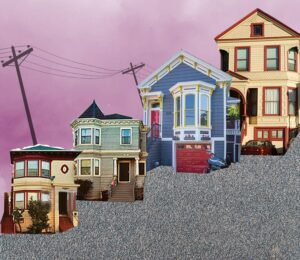For the past few weeks, there have been interesting moves for feminism in media. From Patricia Arquette’s feminist speech at the Oscars to Lena Dunham’s comments in Variety, feminism is making its claim on society. However, this is mostly white feminism that’s taking the media by storm.
With all of these declarations, I feel that they do not – and probably never will – apply to me.
In my introduction to this column, I briefly discussed my rocky experiences with feminism as a queer Black woman. Although I’ve learned a lot working with this column, I still feel that some of those feelings and experiences are still swept under the rug. As I’ve stated before, I feel like I’m fighting for more than just my gender. I’m fighting for inclusivity and space in every realm possible because of my identity — things that I cannot change about myself.
My personal struggles bring up my biggest issue at hand with feminism: inclusivity for marginalized people in this realm. The New Republic’s opinion piece on trans students at women’s colleges proved that we have a long way to go to live up to Chimamanda Ngozi Adichie’s definition of feminism. Saying that an entertainer like Iggy Azalea can express and claim her sexuality through her music while Beyonce can’t shows clear inconsistencies in feminism are just two examples of how so much work needs to be done for marginalized people to have a true space and voice in feminism.
There is a reason why womanism, an ideology of feminism for Black women and women of color, exists. There’s a reason Black feminism gained its roots away from second wave feminism. Overall, there’s an explanation for pretty much of all of these ideas. These movements (and many others that can be named) have issues with more than just gender weighing on their shoulders. There are issues of sexuality, race, class, identity; the list can probably go on and on.
Importantly, it shows that different movements have been made to create a sphere that womanists, Black feminists, queer feminists, transfeminists – pretty much every different movement you can name– can belong in because a majority of us feel that we cannot and will not belong in feminism.
In order for marginalized groups to belong in this movement, the definition of feminism has to change a tad bit. For instance, it has to assist with promoting racial equality and sexual freedom and choice for all. Overall, feminism still has a lot to do and work on.
I’m not knocking what feminism has done for society. I’m just saying that diversity in feminism matters, that it’s not just cis white women fighting for fair wages, sexuality or anything you’ve heard on social media or on the news. We have voices that should matter in this movement.


